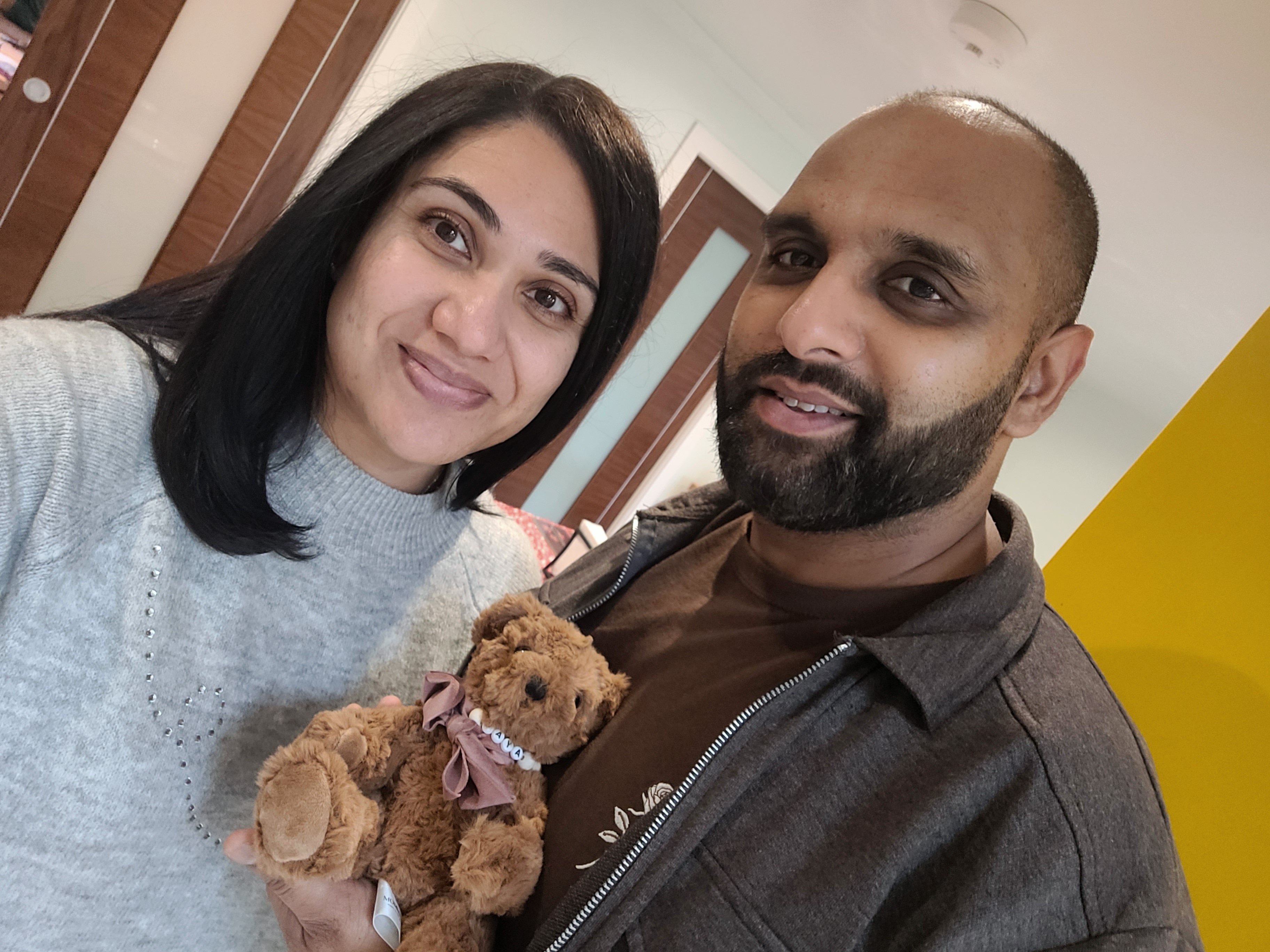Vaishali is a bereaved mother of Asian/Indian ethnicity, who lost her baby Jaya at 22 weeks and one day. With the right care and information, she believes that Jaya's death could have been prevented.
Vaishali shared her story with Sands as part of the Listening Project. Some of the details in her story may be upsetting to read or hear, please remember that we are here for you.
Vaishali became pregnant following IVF. At the start of her pregnancy, she was told she was ‘high risk’, but the midwives and doctors looking after her didn’t give her any detailed information about why, or what this could mean for her and her baby. This left her feeling scared and uncertain about what care she should be getting.
A doctor told her that she would need some extra blood tests and urine checks at her 20-week scan. But when she went to the scan and explained this, the midwife told her it wasn’t routine practice, and so the tests were not done.
Just before 22 weeks, Vaishali called her local hospital and told them that she was worried because her pregnancy was high risk and she had been leaking fluid over the last two days. A midwife told Vaishali that she should monitor the leaking and call back only if it started again. As the leaking had stopped by this time, Vaishali went on holiday the next day, following the advice she had been given. Now, she wishes she had gone to the local A&E department to get checked out.
The next day, while overseas, Vaishali developed a high temperature, which was treated with paracetamol and fluids. She was told it was OK to fly back home that same day, but to go to hospital immediately when back in the UK.
By the time she arrived in the UK, Vaishali had a serious infection and was experiencing some bleeding. She went straight to a nearby hospital and, after being examined, was told that her cervix was starting to open.
The next day, she learnt that there were no waters left around her baby, and that her baby’s foot was coming down through her cervix. Vaishali was told that there was nothing the obstetric team could do for her baby now, and that she would have to labour and give birth. At just over 22 weeks, Vaishali gave birth to her daughter, who died soon after being born.
Vaishali has since been frustrated by the lack of accountability from the hospital. They admitted that there had been communication issues between the doctors and midwives but did not say what steps they would take to make sure this did not happen again. Instead, they told Vaishali that she would have to carry all her letters with her in any future pregnancies. Vaishali does not think the full responsibility should be on her to make sure professionals have the information they need from each other to give her the right care.
Despite the issues with her care in pregnancy, and lack of accountability after her daughter’s death, Vaishali felt she received excellent bereavement care from midwives who were ‘nothing short of amazing’.
Today, Vaishali is more aware of inequalities in baby deaths among different ethnic groups, and wonders whether her ethnicity may have been a factor in the care she received before her daughter’s death.
You can read the findings of the Listening Project and how we're using this to tackle inequalities in baby deaths and get involved in our campaigning on this issue.
Sands supports anyone who has been affected by the death of a baby before, during or shortly after birth. We also offer tailored support for Black and South Asian parents, family members and others following pregnancy loss or the death of a baby.

